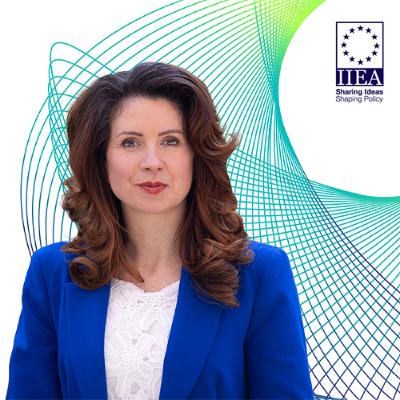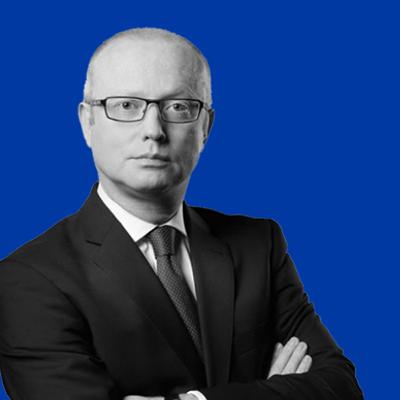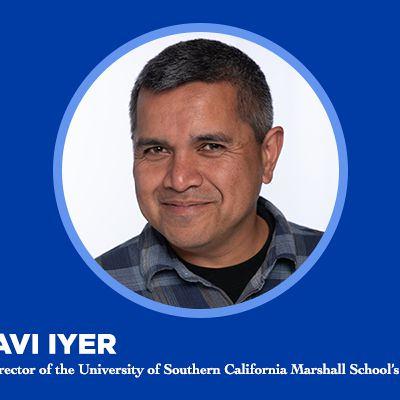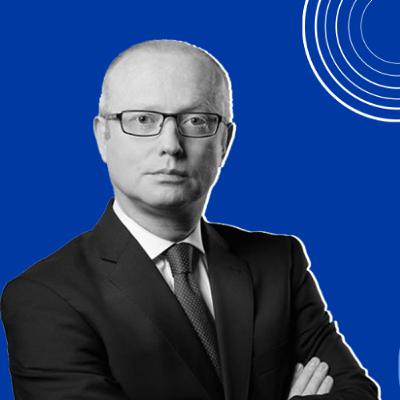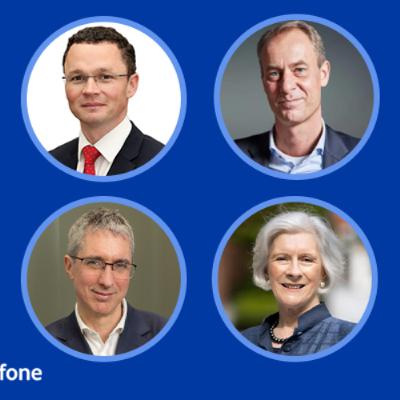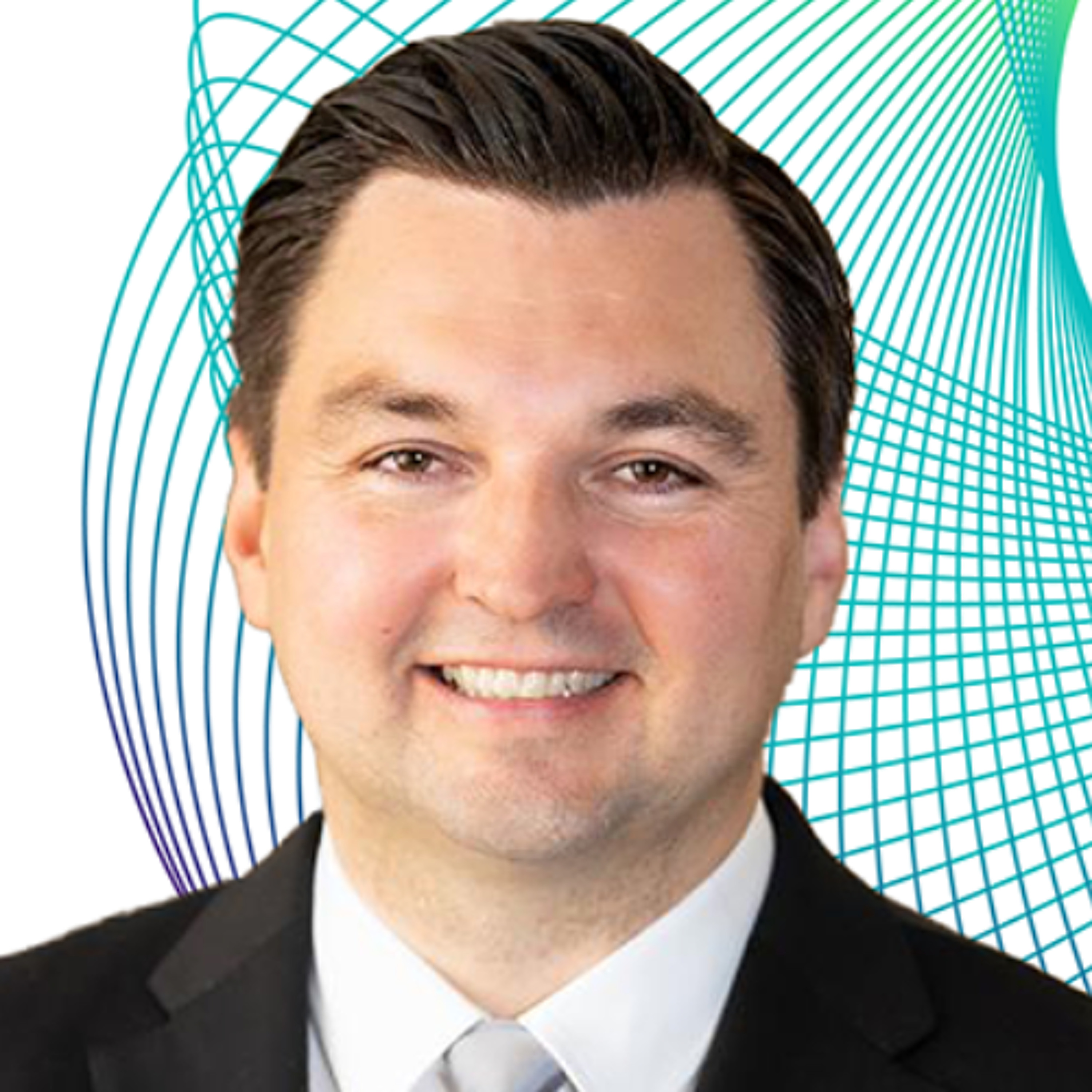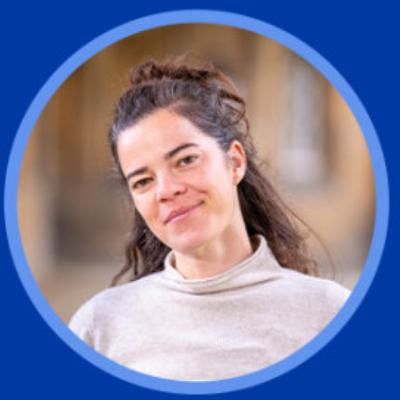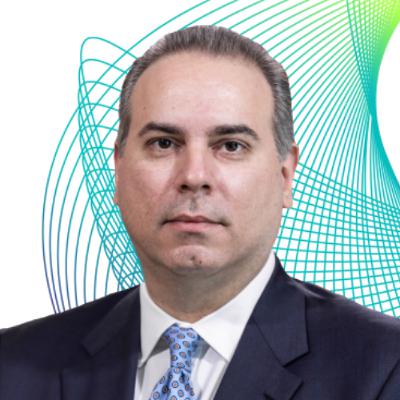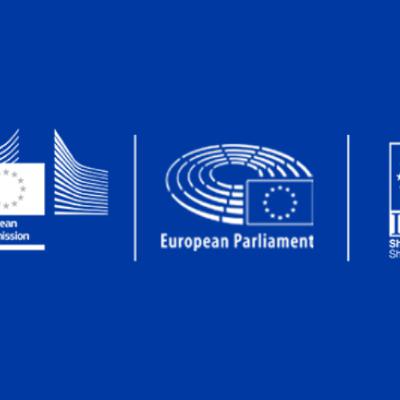Discover IIEA Talks
IIEA Talks

629 Episodes
Reverse
In her speech to the IIEA, Kata Tüttő, President of the European Commission of the Regions, addresses the European Commission’s proposal for the next EU budget (2028-2034). She argues that the proposals represent an unprecedented attempt to centralise and nationalise EU policies, weakening the role of regions and cities in the European project. Whilst recognizing the emerging challenges of security and competitiveness, President Tüttő speaks about how regional and local leaders can mobilise to promote Europe’s growth model by ensuring that local and regional authorities play a full and inclusive role.
Speaker bio:
Kata Tüttő is a Hungarian politician, economist, and public servant with over two decades of experience in local government, European policy-making, and urban sustainability. As of February 2025, she serves as president of the European Committee of the Regions (CoR), which represents local and regional governments from across Europe. At the same time, she remains a member of the Budapest City Council. Previously, Ms Tüttő served as the deputy mayor of Budapest from 2019-2024, overseeing climate adaptation, waste and water management, public transport, and utility services. She played a crucial role in making Budapest more sustainable and resilient, advocating for green investments and inclusive urban development.
'European defence: economics and business perspectives'
Europe is rearming. The changed perception of the threat posed by Russia since its full-scale invasion of Ukraine in 2022 has led to increases in defence spending in most countries and commitments by Nato members to make further substantial increases in the future. To understand the economic and business implications of this, the next edition of IIEA Insights will feature economist Juan Mejino-López of the Bruegel think tank in Brussels and Barry Lunn, founder and CEO of Proviso
Barry Lunn is the founder and CEO of Proviso, a firm at the cutting of edge of developing advanced sensors for the transport sector. Based in Shannon, the company’s clients have included Nasa, Uber and Ford, among others.
Juan Mejino-López is a research analyst at Bruegel where he has written about defence, among other things. He has previously worked on on public policy in the academic and consultancy sectors.
In her address to the IIEA, Erin Sikorsky discusses the pathways through which climate change is shaping instability and conflict globally. Her remarks reflect upon how extreme weather, slow-onset hazards, and responses to climate change intersect with geopolitical competition, hybrid warfare, and other foreign and security policy trends.
About the Speakers:
Erin Sikorsky is Director of the Center for Climate and Security (CCS), and the International Military Council on Climate and Security (IMCCS). She is also the author of Climate Change on the Battlefield, published earlier this year. Previously, Erin served as Deputy Director of the Strategic Futures Group on the US National Intelligence Council (NIC) in the United States, where she co-authored the quadrennial Global Trends report and led the US intelligence community’s environmental and climate security analysis. She was the founding chair of the Climate Security Advisory Council, a US Congressionally mandated group designed to facilitate coordination between the intelligence community and US government scientific agencies. Prior to her position on the National Intelligence Council, she worked as a senior analyst in the US intelligence community for over a decade, leading teams examining conflict and instability risks in Africa and the Middle East, and won the National Intelligence Analysis Award.
Following the end of the Cold War, the world experienced a remarkable wave of democratization. Over the next two decades, numerous authoritarian regimes transitioned to democracies, and it seemed that authoritarianism as a political model was fading. But as recent events have shown, things have clearly changed. Based on their new book Dictating the Agenda, Alexander Cooley and Alexander Dukalskis reveal how today's authoritarian states are actively countering liberal ideas, advocacy surrounding human rights and democracy across various global governance domains.
About the Speakers:
Alexander Cooley is the Claire Tow Professor of Political Science and Vice Provost for Research and Academic Centers at Barnard College, Columbia University. From 2015-21 he served as the 15th Director of Columbia University's Harriman Institute for the Study of Russia, Eurasia and Eastern Europe. Professor Cooley's research examines how international actors have influenced the governance, sovereignty, and security of the post-Communist states. In addition to his academic publications, Professor Cooley's commentaries have appeared in Foreign Affairs, New York Times, and Washington Post and he has testified for the US Congress, UK Parliament and the Parliament of Canada.
Alexander Dukalskis is associate professor in the School of Politics & International Relations at University College Dublin. His research and teaching interests include authoritarian politics, human rights, and Asian politics. He is also a frequent expert commentator in national and international media on these themes. From 2022-2024 he directed UCD's Centre for Asia-Pacific Research. He is the author of two previous books, Making the World Safe for Dictatorship (Oxford University Press, 2021) and The Authoritarian Public Sphere (Routledge, 2017), and academic articles in several leading journals.
This webinar features a keynote address by Professor Emily Shuckburgh, Director of Cambridge Zero, followed by a fireside chat with Dr Eileen Culloty, Deputy Director, DCU Institute for Media, Democracy, and Society. Together, they will discuss the persistence of climate change myths, the role of the media in shaping public understanding, and how fact-checking, improved communication, and public engagement can counter misinformation. The discussion will highlight how false narratives can undermine climate action, and how researchers, communicators, and the public can work together to build a more informed and constructive debate.
This event is part of the IIEA’s REthink Energy series, organised in partnership with ESB.
Professor Emily Shuckburgh CBE is a world-leading climate scientist and science communicator, who is the director of Cambridge Zero, the University of Cambridge’s ambitious climate change initiative. Prof Shuckburgh is a mathematician and Professor of Environmental Data Science at Cambridge’s Department of Computer Science and Technology.
Dr Eileen Culloty is an Assistant Professor in the School of Communications, DCU and Deputy Director of the DCU Institute for Future Media, Democracy, and Society. Her work focuses on disinformation, media literacy education, and the future of public media.
According to Eddie Rish, CEO of the International Hydropower Association (IHA) sustainable hydropower is the ignored giant of renewable energy. Mr Rish provides an overview as to how it plays a pivotal role in enabling the global energy transition by providing secure, reliable, low-carbon electricity and flexible storage. This webinar explores how it’s different uses can help to provide clean, green, secure, flexible, and affordable energy systems.
About the Speaker:
Eddie Rish has worked on the role of corporates in international development for over 20 years. He was appointed CEO of IHA in 2019. Since then, IHA has repositioned itself as a values-based organisation that prioritises sustainable hydropower.” He was instrumental in the launch of the Hydropower Sustainability Standard in 2021 and the establishment of the influential International Forum on Pumped Storage Hydropower. In 2022, IHA was awarded International Association of the Year.
Previously, Mr Rish was deputy head of the Extractive Industries Transparency Initiative (EITI).His prior experience included working as the UK Government Department for International Development (DFID)’s representative to Angola and its deputy head in Kenya. He was also head of the DFID's corporate social responsibility team.
The geopolitics of the Middle East have entered a period of profound flux. In recent years, shifting alliances, contested interventions, and the rise of non-state actors have reshaped the region’s landscape. From the Iran–Saudi détente to the Abraham Accords, from the wars in Syria and Yemen to the conflict in Gaza, the stakes for regional and international order are considerable. In his remarks to the IIEA, Dr Hellyer offers a perspective from the region itself, exploring how Middle Eastern states interpret threats and opportunities, the changing role of global powers, and the prospects for a regional security framework less dependent on external actors. He also considers the implications for Europe and the wider international community.
Speaker bio:
Dr. H. A. Hellyer is Senior Associate Fellow with expertise in Geopolitics and Middle East Studies at the Royal United Services Institute for Defence and Security Studies (RUSI), the world’s oldest defense think tank. He is also Senior Fellow in Geopolitics and Security Studies at the Center for American Progress in Washington, D.C., which follows senior tenures in Washington at the Brookings Institution, the Carnegie Endowment for International Peace, the Brookings Institution, and the Atlantic Council. Dr Hellyer has advised the UK government on radicalisation and extremism in Europe, and is regularly called upon by the public and the private sectors for non-partisan expertise on Middle East developments. A frequent media commentator, he has provided analysis for CNN, the BBC, the Washington Post, and The New York Times. Dr. Hellyer has also held appointments at Cambridge, Harvard, Warwick, and the American University in Cairo. He is the author of ten books and hundreds of articles on the politics and security of the Middle East and Europe.
Since Russia's full-scale invasion of Ukraine in 2022, Western states not only find themselves in a changed geopolitical environment but have also learned important lessons about the role of the private sector in wartime. Ranging from the countering cyber-threats, ensuring continuity of communications, and the provision of space-based capabilities, the private sector has access to resources and expertise that states may not have themselves. Their capacity to augment national security risks making the private sector a target of hostile aggression. In his remarks to the IIEA, Franklin D. Kramer explores the changing role of the private sector in wartime crises and ensure that western states are prepared for future crises should they occur.
Speaker bio:
Franklin D. Kramer is a distinguished fellow and board director at the Atlantic Council. Kramer has served as a senior political appointee in two administrations, including as Assistant Secretary of Defense for International Security Affairs. At the US Department of Defense, Kramer was in charge of the formulation and implementation of international defense and political-military policy, with worldwide responsibilities including NATO and Europe, the Middle East, Asia, Africa, and Latin America.
In this event Dr Ravi Iyer discusses how many people’s lives are increasingly being lived online, with significant implications for mental health. Dr Iyer discusses how many users encounter unwanted or disturbing content and experiences and how many people use digital services excessively with sometimes negative results for their well-being. Dr Iyer discusses how the design choices of online platforms contribute to these trends. He finally assesses how the negative consequences that can arise from this might be mitigated and the role that can be played by companies, governments, and civil society stakeholders in this regard.
About the Speaker:
Dr Ravi Iyer is the Managing Director of the University of Southern California (USC) Marshall School’s Neely Center. Previously he spent over four years leading data science, research and product teams across Meta to improve the impact of social media on both society and individuals. He has a Ph.D. in social psychology from USC and has co-authored numerous articles on the psychology of values and well-being. He currently advises the UK Office of Communications, the Anxious Generation team, as well as several other jurisdictions on how to improve the societal impact of technology.
'How Might the US React to the Occupied Territories Bill Becoming Law?'
Over the Summer many US politicians have been increasingly critical of Ireland’s moves to pass the Occupied Territories bill into law with many calling for Ireland to face sanction if it does so. To discuss the implications of these developments and what measures the US might take, Insights will be joined by Ilan Goldenberg, Senior Vice President and Chief Policy Officer at J Street, who has previously served at the US State Department Department of Defense. Also joining the discussion is Eugene Kontorovich, Senior Research Fellow in The Heritage Foundation and professor at the George Mason University Antonin Scalia Law School, whose opinion article in the Wall Street Journal in early July advocated for a strong US response in the event of Ireland’s enactment of the Occupied Territories bill.
In recent years, increased attention is being paid to the importance of protecting offshore infrastructure from threats. Offshore energy and communications infrastructure, such as wind farms and subsea cables, are increasingly being viewed as targets by hybrid threat actors. Incidents such as the damage to the Balticconnector cable and Nordstream pipelines have heightened awareness of the threat to critical offshore infrastructure. In response, European states are increasing their cooperation to ensure that such infrastructure is secure. Against this backdrop, Ireland is drafting a National Maritime Security Strategy to consider how best to protect both existing, and planned future, infrastructure. In this panel discussion, experts will discuss the threats to critical offshore assets, and what we can do to better protect them from hybrid risks.
This event has been organised in conjunction with the Embassy of the Kingdom of the Netherlands in Ireland.
About the Speakers:
· Commodore Eduard de van der Schueren, Programme Director for the Protection of North Sea Infrastructure at the Dutch Ministry of Defence
· Vice Admiral (Ret.) Mark Mellett, Former Chief of Staff of the Irish Defence Forces
· Jacqui McCrum, Secretary General of the Department of Defence
· Dr Camino Kavanagh, Senior Fellow with the UN Institute for Disarmament Research (UNIDIR) and a Visiting Senior Fellow with the Dept. of War Studies, King’s College London.
We have seen the turmoil and chaos that the Trump Administration’s tariffs have caused over recent weeks and months. Since President Trump’s trade announcements, countries have been rushing to make new trade agreements, find new markets for their exports, as well as prepare for possible trade wars. In her address to the IIEA, Cecilia Malmström discusses the effect that US trade policy has had on Europe and the wider world. She also explores the impact US tariffs will have on how other countries will conduct trade in the future.
About the Speaker:
Cecilia Malmström served as European Commissioner for Trade from 2014 to 2019, and as European Commissioner for Home Affairs from 2010 to 2014. She was a member of the European Parliament from 1999 until 2006. She was also Minister for EU Affairs in the Swedish Government from 2006 to 2010. As European commissioner for Trade, Ms Malmström represented the European Union in the World Trade Organisation (WTO) and other international trade bodies. In this role, she was responsible for negotiating bilateral trade agreements with key countries, including agreements with Canada, Japan, Mexico, Singapore, Vietnam, and the four founding Mercosur countries. Ms Malmström joined the Peterson Institute for International Economics (PIIE) as non-resident Senior Fellow in June 2021 and hosts the PIIE’s Trade Winds, a biweekly virtual event series. She is also a visiting Professor at the School of Business, Economics and Law at the University of Gothenburg. She holds a PhD in Political Science from the University of Gothenburg.
Digital infrastructure and high-speed connectivity are the backbones of Ireland’s digital economy – they are fundamental for innovation, economic competitiveness, and the wellbeing of Ireland’s population. As demand for digital services continues to surge, Ireland’s infrastructure faces increasing pressure. This event brings together an expert panel representing government, industry, regulatory authorities, and academics to discuss how investment and government policy can promote Ireland’s digital infrastructure and connectivity to secure the country’s competitiveness. This event is organised in collaboration with Vodafone Ireland.
This event begins with a keynote address by Minister Patrick O’Donovan, Minister for Culture, Communications and Sport.
The panel for this event include:
Joakim Reiter, Chief external and corporate affairs officer at Vodafone Group;
Garrett Blaney, Chair and Commissioner at the Commission for Communications Regulation; and
Dr Frances Ruane, Chair of the National Competitiveness and Productivity Council.
Developing a Life Sciences Vision for Ireland: The EU Agenda examines how Ireland can position its national life sciences strategy in the context of the European Commission’s 2025 Strategy for European Life Sciences and other new EU initiatives. Drawing on national and EU-level experience, panellists discuss key developments in EU life sciences policy and what Europe is doing to strengthen its competitiveness, research capacity, and innovation ecosystem. The event will also explore how Ireland can secure and strengthen its own role as a key player in Europe’s life sciences landscape by aligning its policy ambitions with emerging European trends.
This event is organised by the Institute of International and European Affairs in partnership with Johnson & Johnson.
Panellists:
Pilar Aguar Fernandez, Director at People: Health and Society at DG Research and Innovation, European Commission
Anouk de Vroey, Head of Government Affairs & Policy at Johnson & Johnson EMEA
Muiris O’Connor, Assistant Secretary at Department of Health, Head of Research & Development and Health Analytics
Darrin Morrissey, CEO of NIBRT National Institute for Bioprocessing Research and Training
Frances Fitzgerald, Former MEP and Tánaiste (Moderator)
Ireland is home to a high-performing life sciences industry, offering major opportunities for both economic development and public health. Unlike other European countries, however, Ireland does not have a holistic vision for the future of the sector. This is set to change, as the Government has promised to develop a national life sciences strategy. Other European countries have already adopted ambitious strategies to secure the future of the industry and unleash its benefits, coordinating policy across a range of areas from enterprise and investment to research and healthcare.
Across the European Union, Member States are aligning national policy with broader EU ambitions for health innovation, research, and industrial resilience. Under initiatives such as Horizon Europe, the European Health Union, and EU4Health, the EU is already providing an increasingly integrated vision. In addition to this, this summer, the EU Life Sciences Strategy has been adopted by the Commission, while a new Critical Medicines Act and Biotech Act are expected soon. What will these new policies mean for Europe? And how should they be reflected in Ireland’s national strategy?
In his address to the IIEA on Finland's Futures Ecosystem in a European context, Minister Joakim Strand draws on tools of strategic foresight to elicit Finland's vision for future-proofing Europe and increasing its presence in the EU Institutions. He highlights Finland’s EU strategic policy objectives of strengthening Europe's democracy; boosting its resilience to malign foreign influence by strengthening media literacy; and improving comprehensive security.
About the speaker:
Minister for European Affairs and Ownership Steering of Finland Joakim Strand is responsible for matters related to the European Union within the Prime Minister's Office that are not covered by the Prime Minister, including representing Finland in the EU General Affairs Council. He is also responsible for state ownership steering policy. Minister Strand is serving his third term as a Member of Parliament from the Vaasa constituency, where he was first elected in 2015. He has served as the Chair of the Committee for the Future and the Intelligence Oversight Committee, and as a member of the Commerce Committee and the Defence Committee, among others. Minister Strand has also worked as the Chair of the City Council of his hometown, Vaasa, the Chair of the Regional Assembly of Ostrobothnia, the Chair of the Kvarken Council, and the Chair of the Board of two energy companies. He holds a Master of Laws and a Master of Science in Economics and Business Administration.
In his keynote address to the Institute, Volker Türk, UN High Commissioner for Human Rights, addresses the disregard for human rights and international humanitarian law across the globe. Amid escalating conflict, deepening inequalities, and growing divisions, High Commissioner Türk speaks about how we need more human rights – not less. Human rights provide a compass to steer us through some of the greatest challenges of our time. We need an unwavering commitment to multilateralism and international law to work towards an equal and just future for all.
Speaker bio:
Volker Türk was appointed as the United Nations High Commissioner for Human Rights in 2022. Prior to this, Mr. Türk was the Under-Secretary-General for Policy in the Executive Office of the United Nations Secretary-General. Over the course of his career, he held a number of key positions including as Assistant High Commissioner for Protection in the Office of the United Nations High Commissioner for Refugees (UNHCR) in Geneva (2015-2019), during which time he played a key role in the development of the landmark Global Compact on Refugees. Mr. Türk holds a doctorate in international law from the University of Vienna and a Master of Laws degree from the University of Linz, Austria.
According to Dr Leah Rose Ely Downey, the power to create money is foundational to the state. In the United States, that power has been largely delegated to private banks governed by an independent central bank. Putting monetary policy in the hands of a set of insulated, non-elected experts has fuelled the popular rejection of expertise, as well as a widespread dissatisfaction with democratically elected officials. In her address to the IIEA, Dr Downey makes a principled case against central bank independence (CBI) by challenging both the economic theory behind it and developing a democratic rationale for sustaining the power of the legislature to determine who can create money, and on what terms. She discusses how states governing money creation has an impact on the capacity of the people and their elected officials to steer policy over time and argues that in a healthy democracy, the balance of power over money creation matters.
About the Speaker:
Dr Leah Rose Ely Downey is a Junior Research Fellow at St. John's College, Cambridge affiliated with the Department of Politics and International Studies (POLIS). Dr Downey is a political theorist with interests in the politics of economic theory, economic policymaking, and the administrative state. Her current research focuses on the democratic politics of monetary policy. Dr Downey is also the author of Our Money: Monetary Policy as if Democracy Matters. In September 2025, she will join the Department of Political Economy at King's College London.
As Ireland prepares for its EU Presidency in the second half of 2026, this keynote speech by Deputy Prime Minister Ivanović addresses the key topic of EU Enlargement. Deputy Prime Minister Ivanović presents Montenegro’s journey as the frontrunner in the European Union accession process, emphasising the country’s achievements, its enduring challenges and its clear vision for the future. From a Montenegrin perspective, EU integration is not merely a technical process, but a strategic and value-driven choice that reaffirms Montenegro’s European identity and its role as a regional leader on the path towards full membership.
Speaker bio:
Dr Filip Ivanović is the Deputy Prime Minister for Foreign and European Affairs of Montenegro, a position he has held since July 2024. Prior to this post, he was Minister of Foreign Affairs. From May 2022 to August 2023, Dr Ivanović served as member of the Governing Board of the University of Montenegro. From 2018 to 2021, he was member of the Working Group for the Negotiations on Accession of Montenegro to the EU for Chapter 25 ‘Science and Research’.
Deputy Prime Minister Ivanović has a distinguished academic career and was a research/teaching fellow at the Norwegian University of Science and Technology, the University of Leuven, the Van Leer Institute in Jerusalem, and the University of Donja Gorica. In February 2020, Dr Ivanović was a visiting professor at the University of North Bengal and in April 2022, he was appointed assistant research professor at the Institute of Advanced Studies of the University of Montenegro. Since 2021, he has also been a visiting scholar at the Centre for Interdisciplinary Research in History of Ideas (CRISI) at the Vita-Salute San Raffaele University in Milan.
Deputy Prime Minister Ivanović is also an expert evaluator of the European Commission, expert of the Agency for Control and Quality Assurance of Higher Education of Montenegro, member of the College of Research Associates of the European Science Foundation, a fellow of the Young Academy of Europe and the Royal Historical Society, and member of the Committee for Philosophy and Sociology of the Montenegrin Academy of Sciences and Arts. He holds BA and MA degrees from the University of Bologna and a PhD from the Norwegian University of Science and Technology in Trondheim. He also holds a Postgraduate Diploma in Diplomatic Practice from the United Nations Institute for Training and Research.
European Commission President Ursula von der Leyen delivers her 2025 State of the Union Address, outlining the EU’s priorities for the year ahead. While the speech is a closely-guarded secret, it may cover issues such as enhancing Europe’s competitiveness, strengthening the EU’s security and defence capacity, building win-win trade partnerships, the EU’s Multiannual Financial Framework (MFF), the European Democracy Shield and upholding the rule of law. To mark this speech, the European Commission and the European Parliament, in conjunction with the IIEA, have live streamed the address, followed by a hybrid expert panel discussion which assesses the key themes explored and President von der Leyen’s outlook and priorities for 2026.
Speakers:
Paddy Smyth, Journalist and Former Europe Editor at The Irish Times (Moderator)
Frances Fitzgerald, Former Tánaiste and MEP
Tom Hanney, Former Ambassador and Permanent Representative of Ireland to the EU
Brigid Laffan, Professor Emeritus, Robert Schuman Centre for Advanced Studies at the European University Institute
Cian Walsh, Secretary of the UCC Government and Politics Society and a Quercus Active Citizenship Scholar
In her keynote address to the IIEA, Dr Caoimhe Archibald MLA, Minister for the Economy in Northern Ireland, discusses economic opportunities for Northern Ireland in the context of constitutional change and her priorities in her current role.
Dr Caoimhe Archibald MLA was appointed Minister for the Economy in the Northern Ireland Executive in February 2025. Previously, she served as Finance Minister from February 2024. Minister Archibald graduated from Queen’s University, Belfast with a BSc in Molecular Biology and a PhD by research with a Department of Agriculture and Rural Development studentship. She also completed a Postgraduate diploma in Management & Corporate Governance at Ulster University. Minister Archibald was elected as an MLA for East Derry in May 2016, re-elected in March 2017, and again in May 2022. She is formerly Chair of the Assembly’s Agriculture, Environment and Rural Affairs, and Economy committees. Prior to being elected in May 2016, she worked for almost a decade in applied horticulture and plant pathology research including on collaborative EU funded projects.


